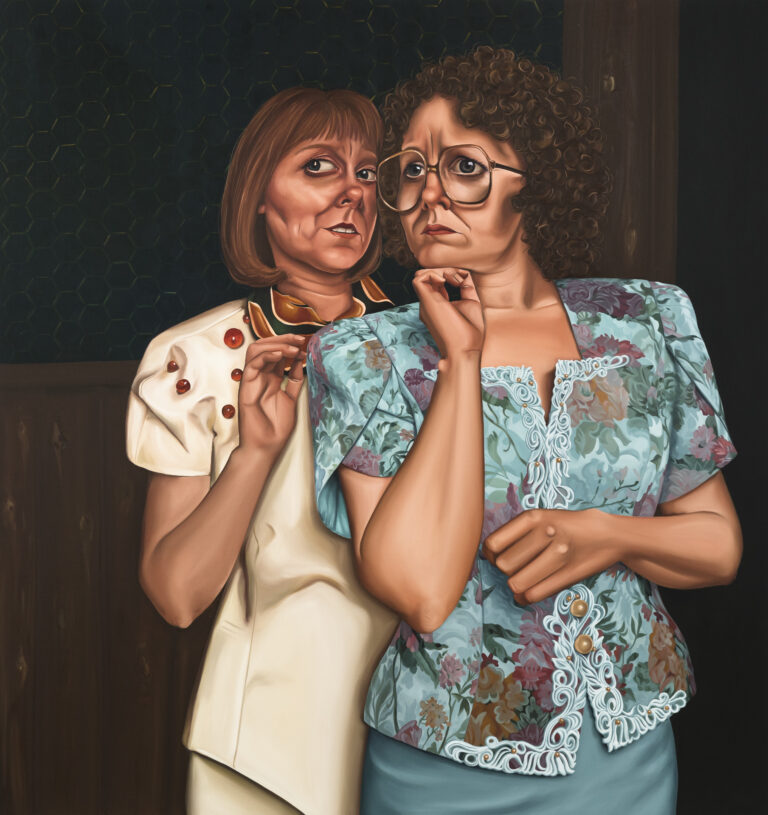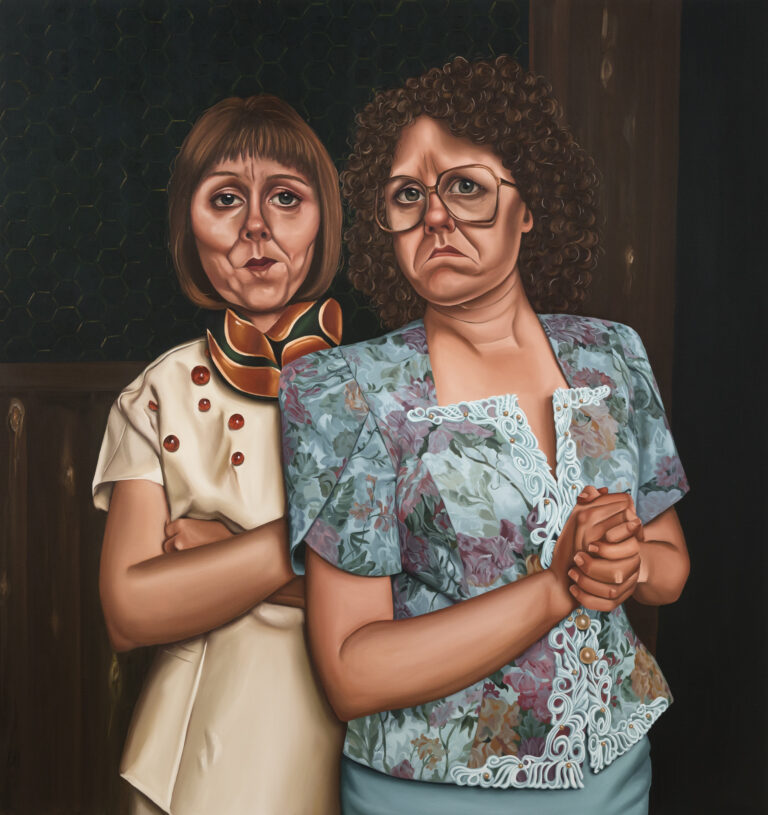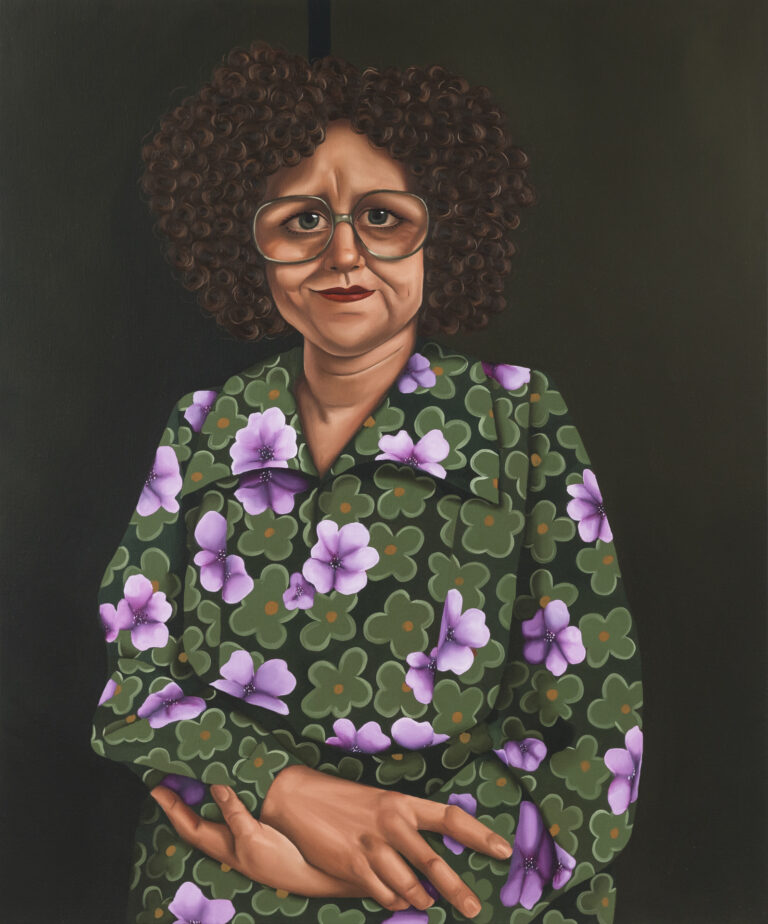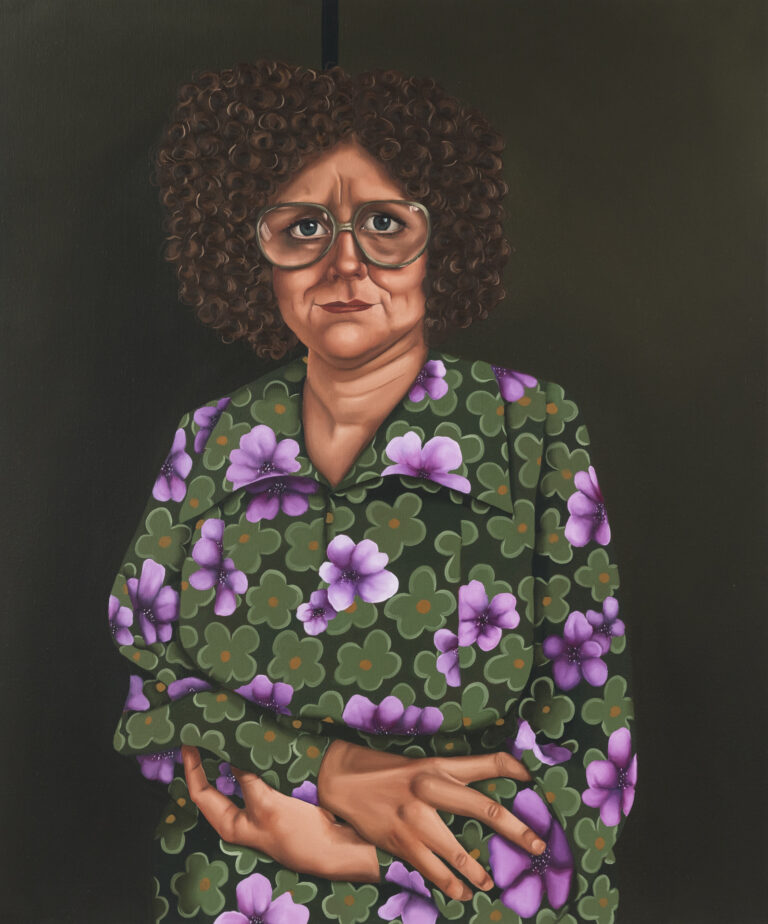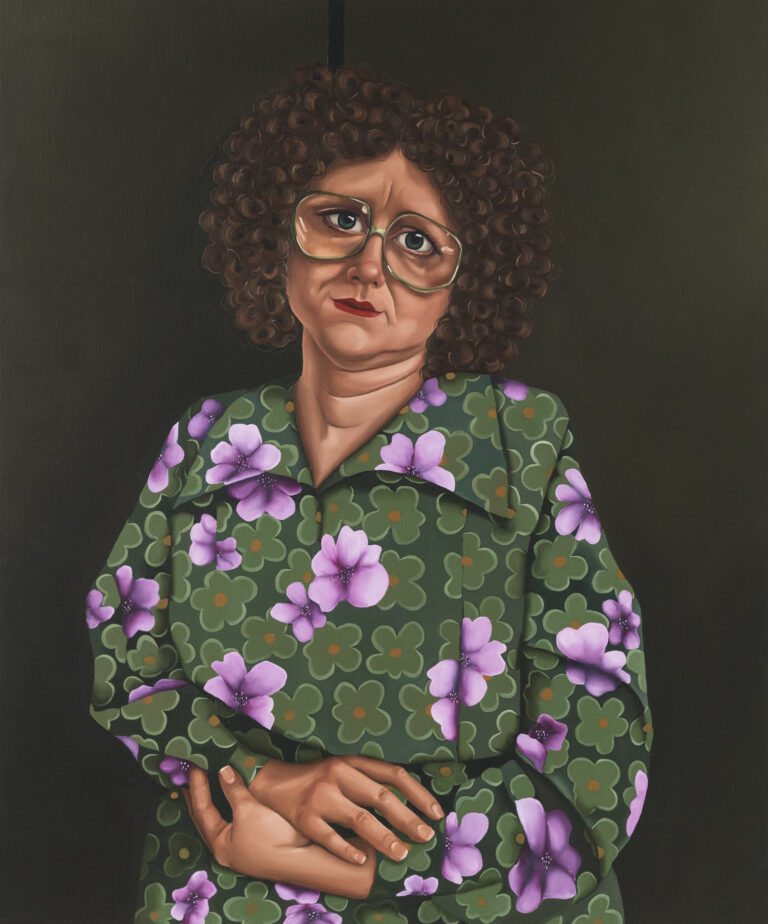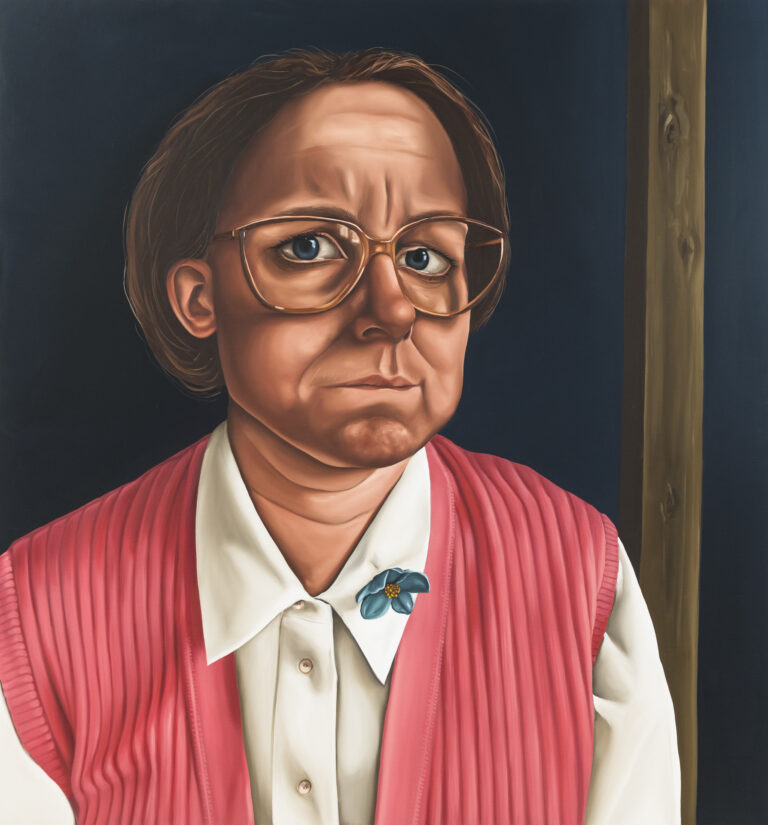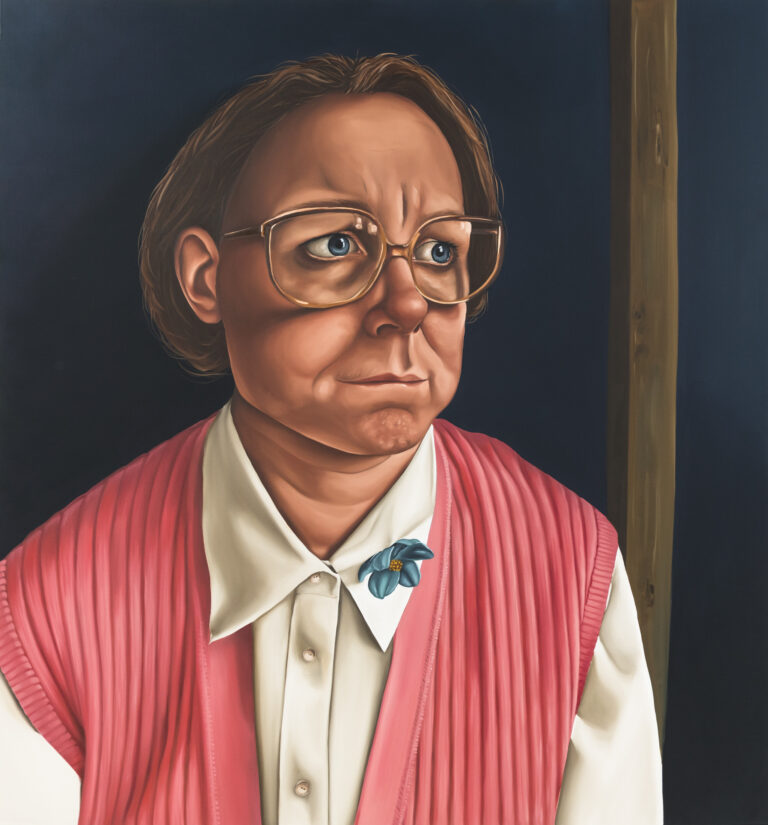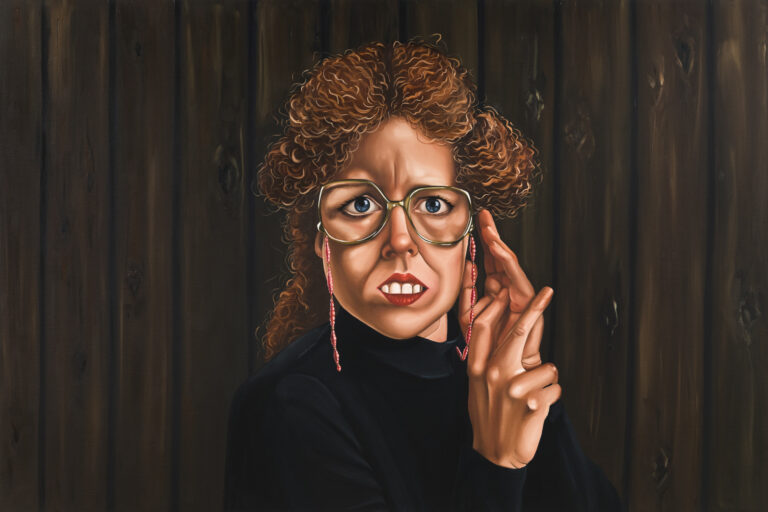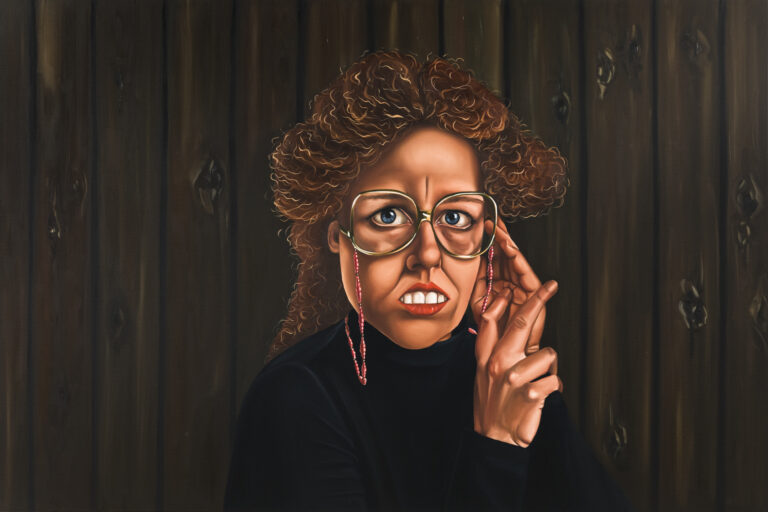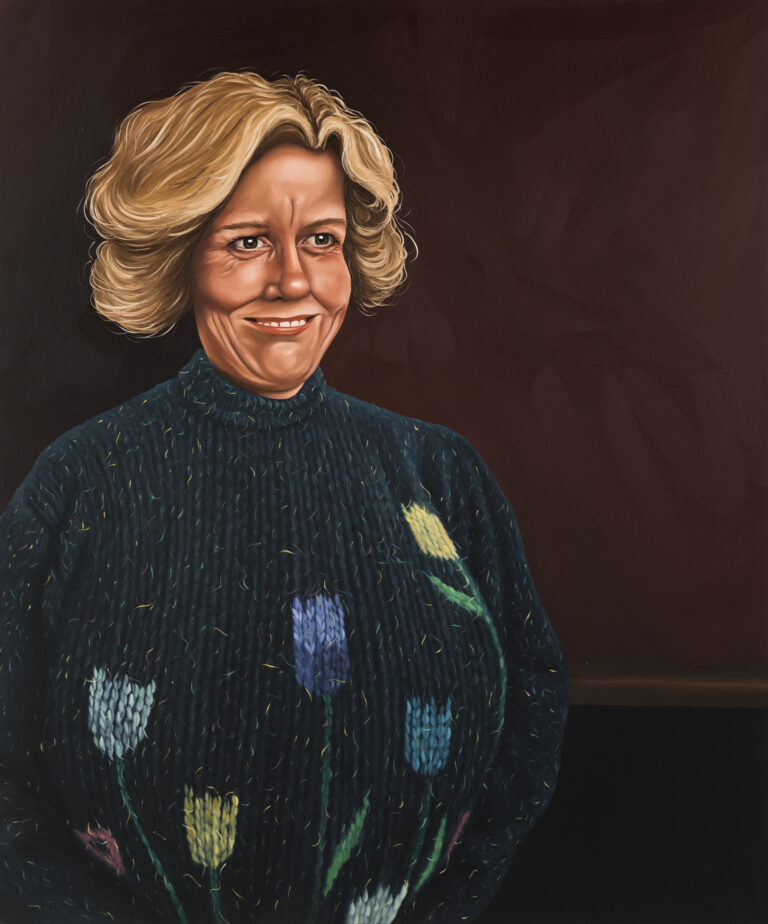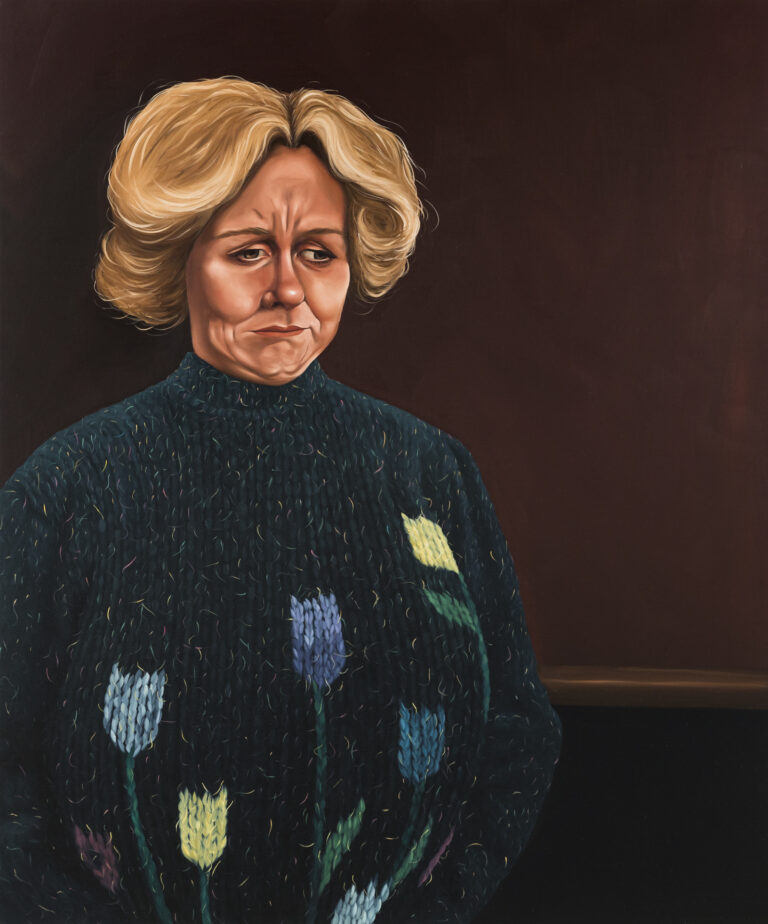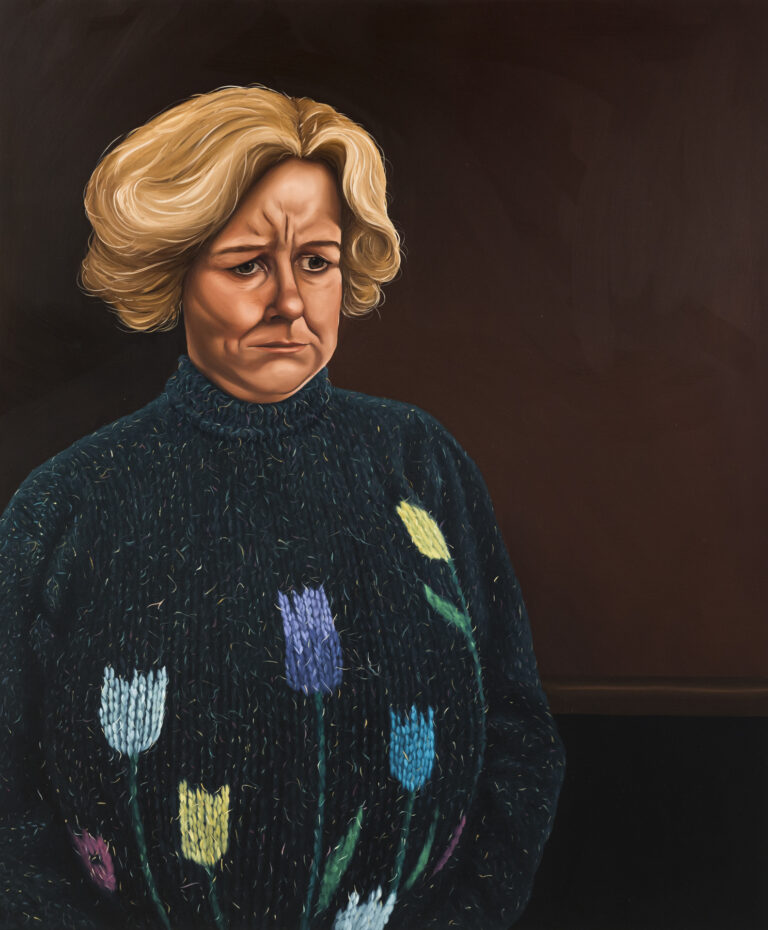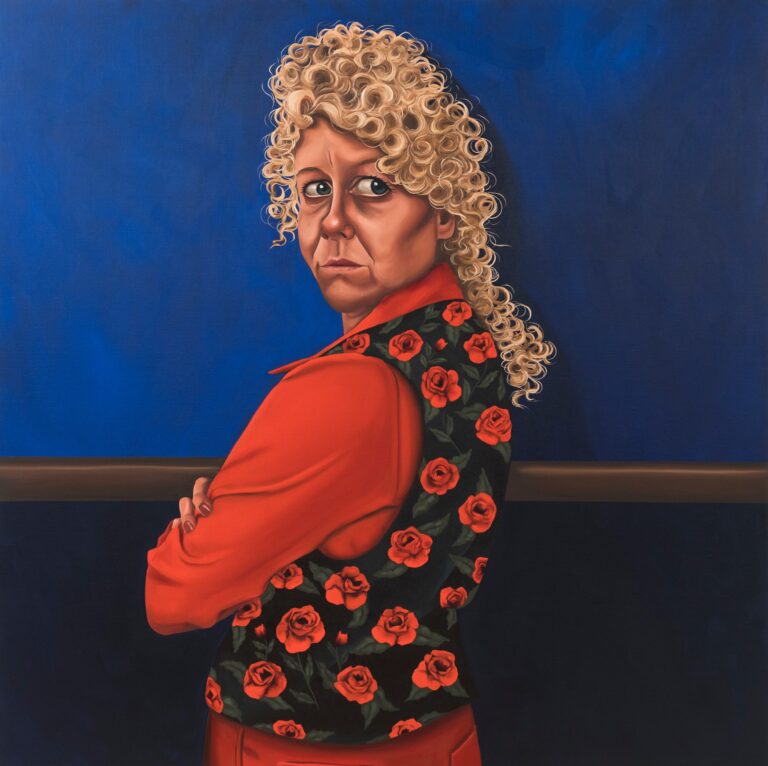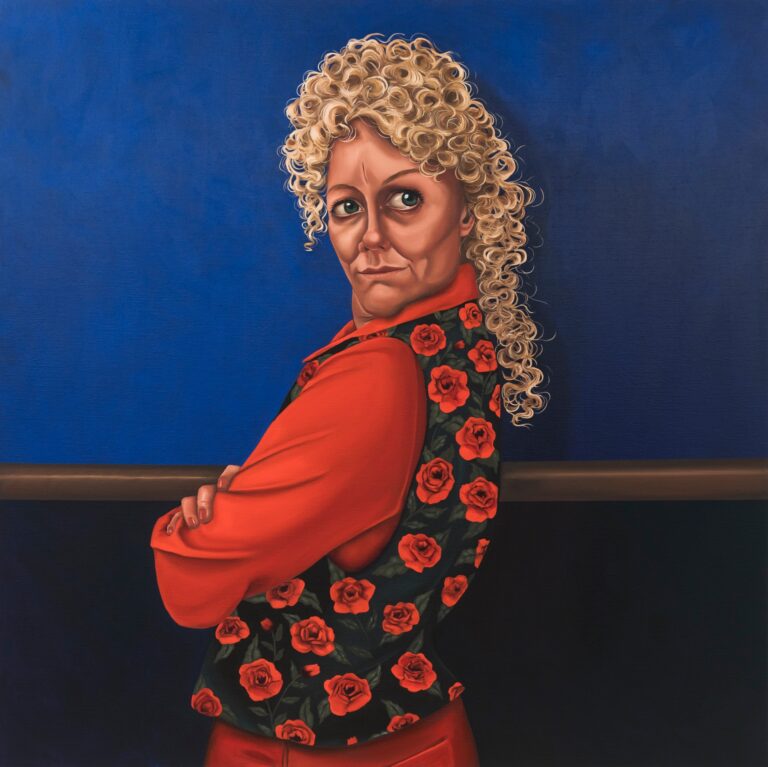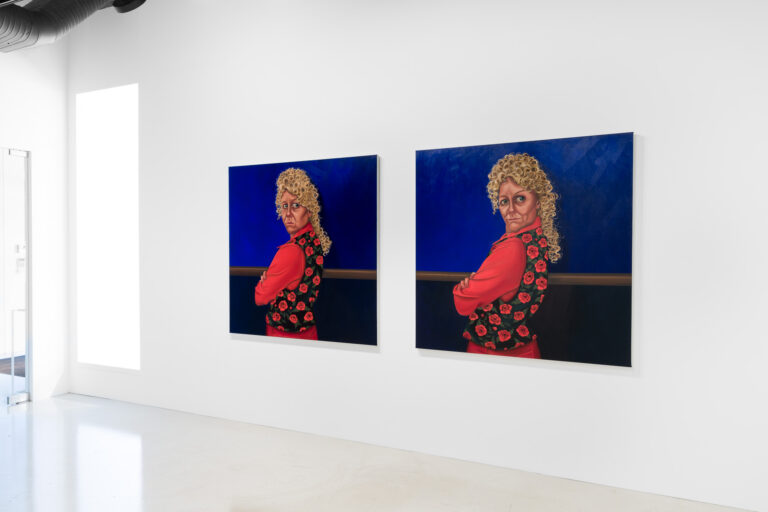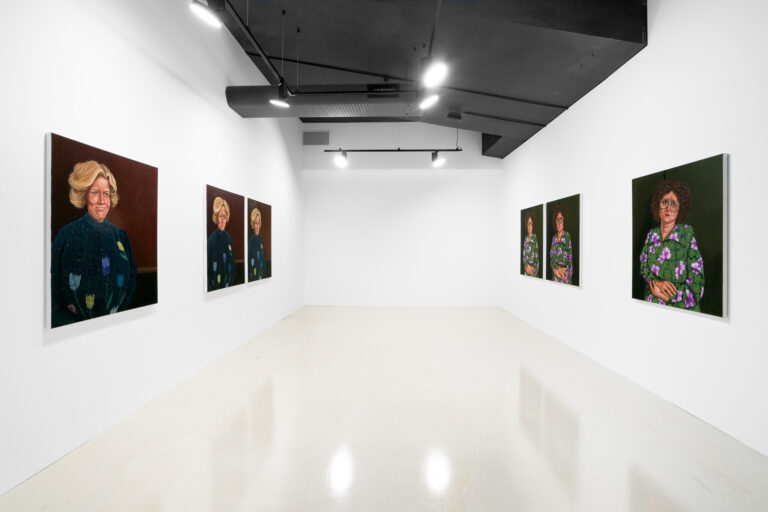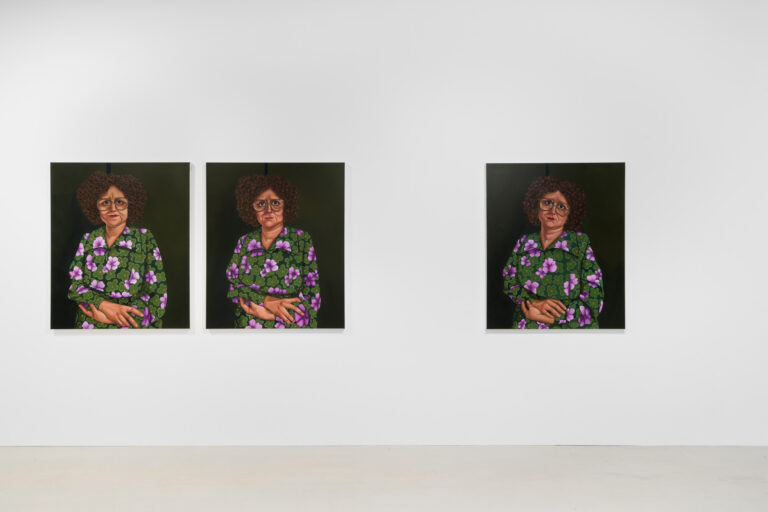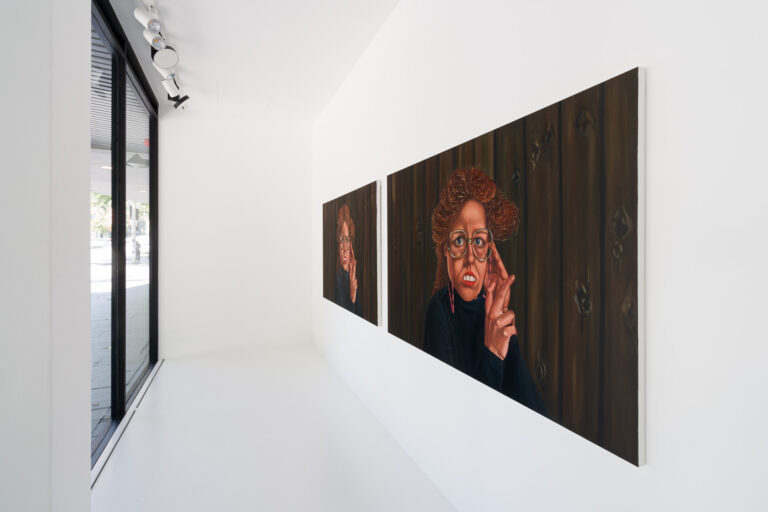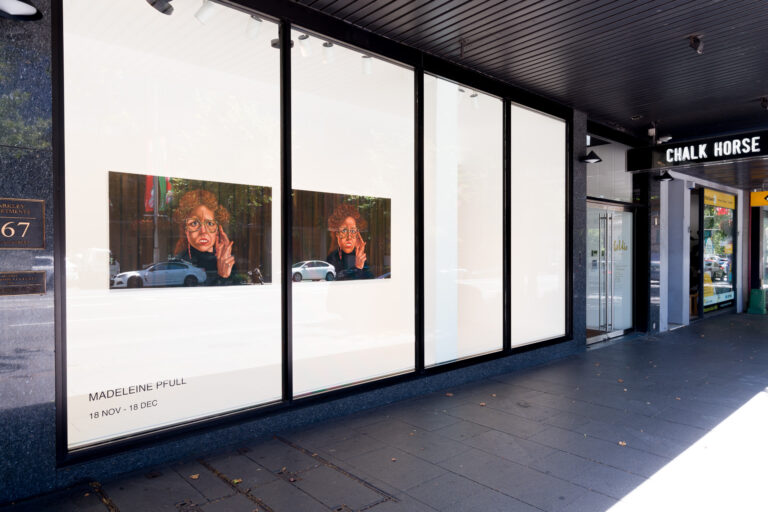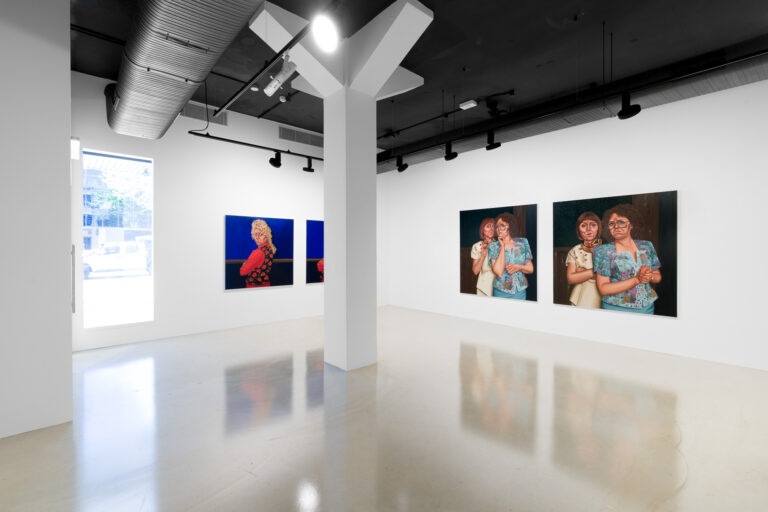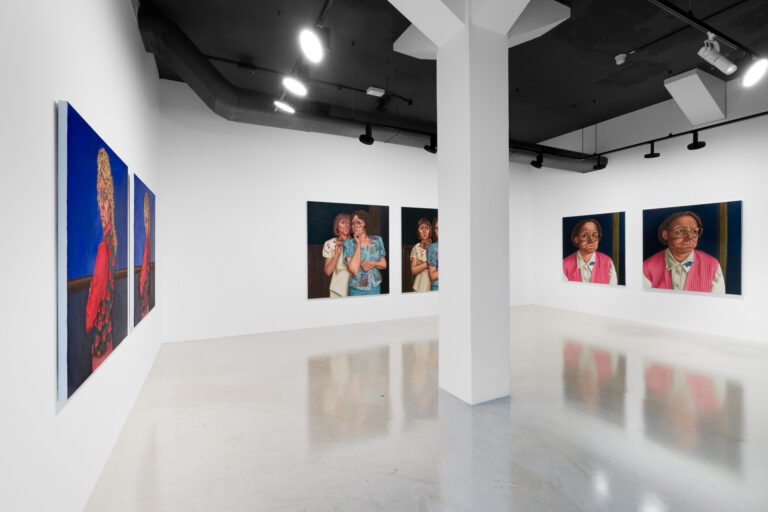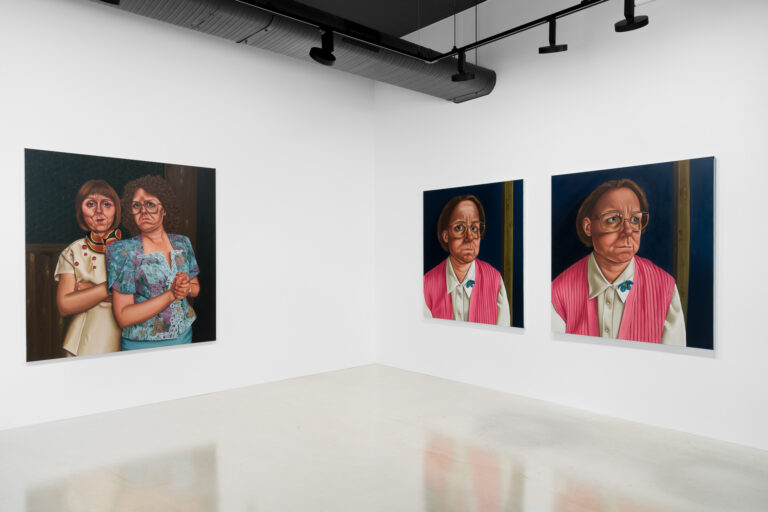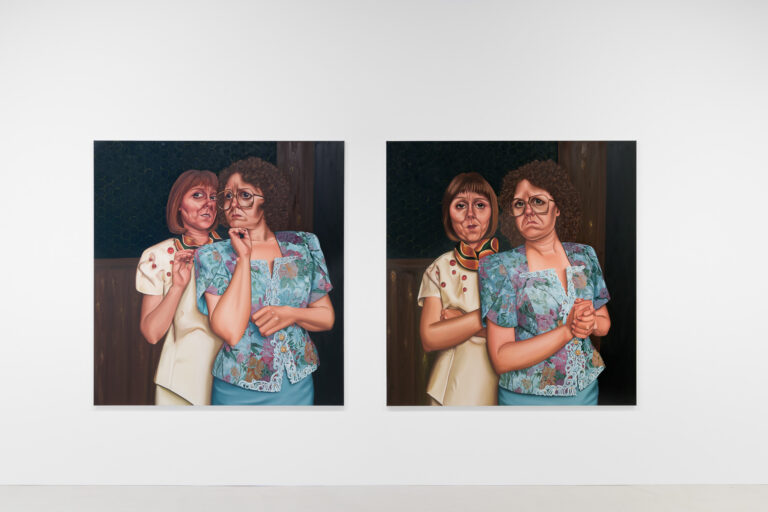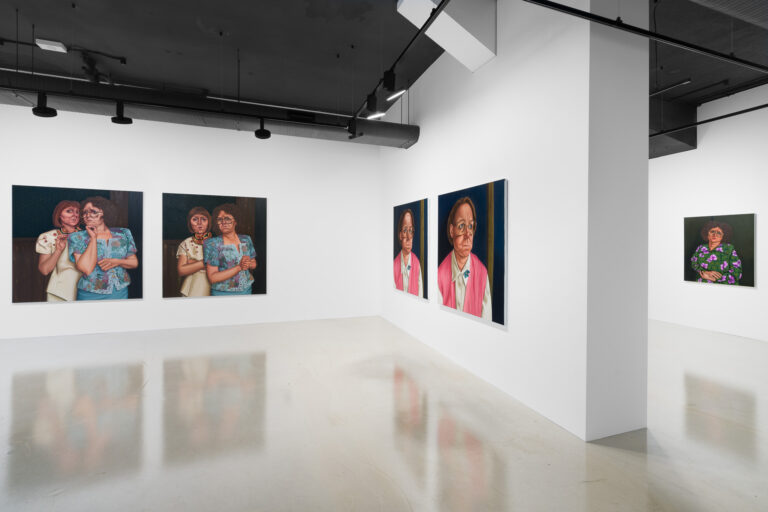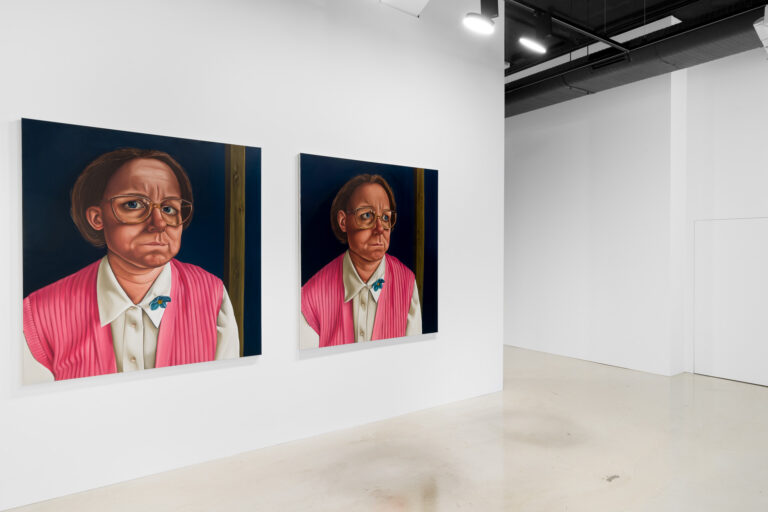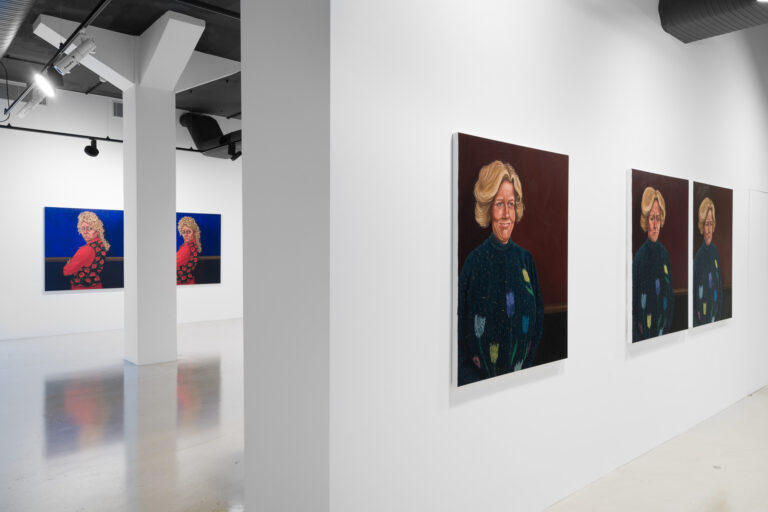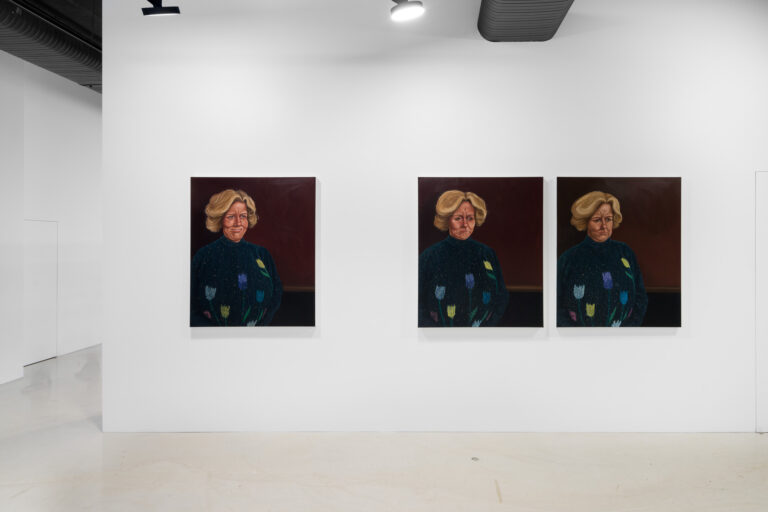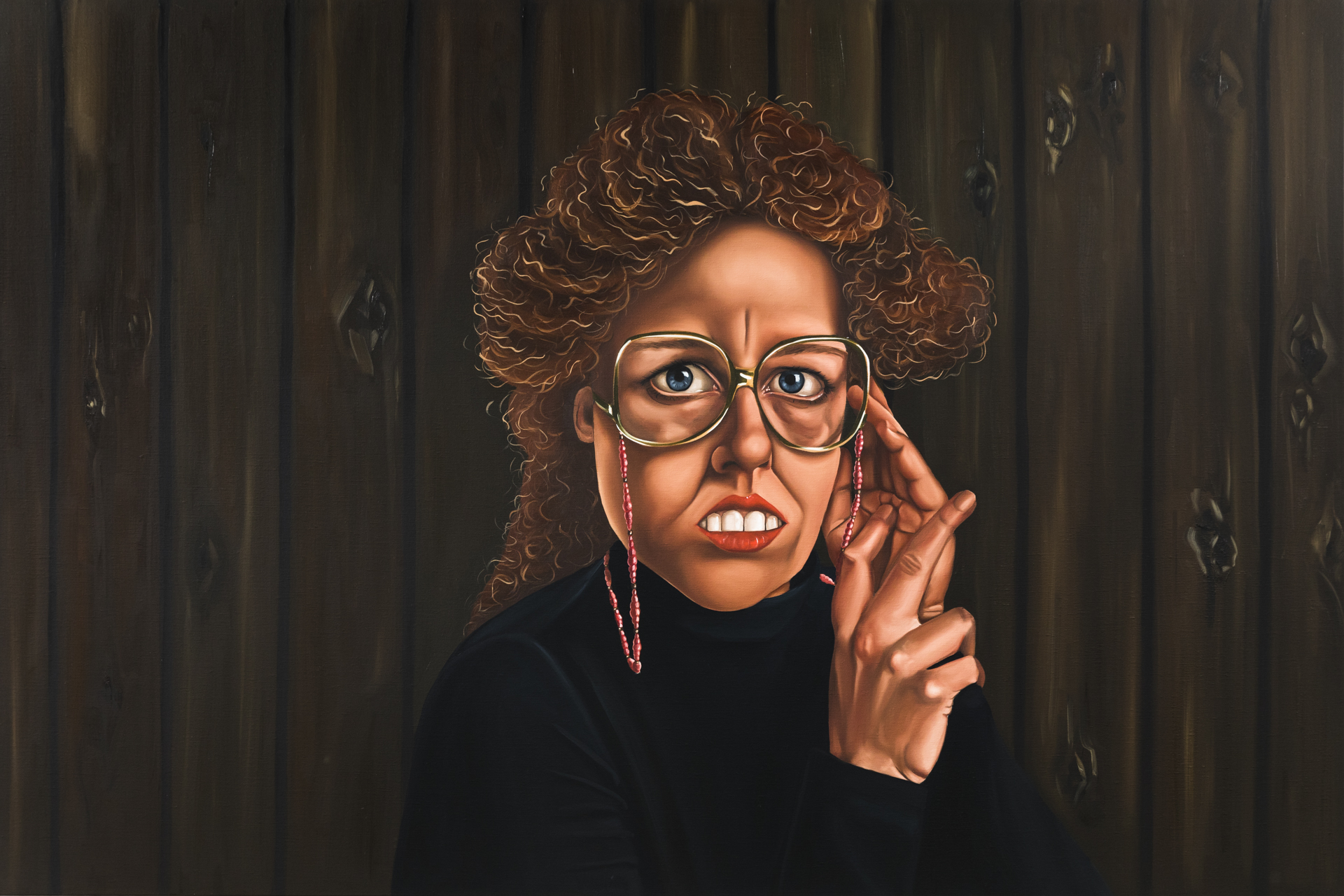
Artworks
Installations
Ever had that feeling where you’ve clearly crossed a threshold of socially acceptable conversation topics but can’t return, because if you do try and turn the conversation around the stranger you just met, and are barking at, will know for sure that your charm wears thin after one glass of free exhibition wine and will gesticulate maniacally to their plus one across the room in a secret pantomime code that silently screams “this grey toothed woman has used the word funky 36 times. HELP!” Yeah well, it’s a feeling I’ve had too often.
The last time I had this feeling, I was standing in a Madeleine Pfull exhibition. When my newly met stranger finally found his eject route, I sloshed around to the painting behind me and felt…seen. For what was looking back at me, was me: A painting of a woman with a face to end all faces. A spirituous someone who was easy to look at, hard to define. She was kind, but bonkers. She was everyone in that room.
In Madeleine’s latest work, we see her returning these inebriating moments as if they are souvenirs of a place, a juncture, a threshold that she won’t let you forget. These characters, these women, are straight-backed and careworn with a cranky beauty that makes you want to run home and forget the word-salad you attempted to impress upon a stranger. In that Heidegger way, Madeleine’s characters are reminders that we do not exist as isolated individual. That whatever I am- a daughter, a mother- necessarily refers to and infers the existence of others – a parent, a child. Madeleine’s nimbleness and willingness to draw lines (where I have tried to blur them) reminds me that we’re all connected to each other’s animality. And in that way, Madeleines new paintings appeal not to your mind, but to your humanity.
Standing in a room with Madeleine Pfull paintings reminds me of that famous quote that famous person said, Be yourself; everyone else is already taken. I’m reminded of those famous words because the truth is, Madeleines characters act as a sort of caution to me. Like, ‘just be yourself’, don’t be ashamed that your teeth are grey from one glass of exhibition wine, they’re just your teeth, not your whole worth. And ‘relax’, don’t worry so much that when you met that curator to that provincial palace you accidentally turned their name into a word that sounded more like a hybridised exercise (to be fair, their name was very jazzy and you’re only human for pointing that out.) Because, in a way, we’re all just trying to survive each other- one clumsy sojourn at a time. It’s an inevitable and deeply liberating task: accepting ones-(gauche)-self. I respect the intelligent and playful way Madeleine handles her own turbulent humanity through these characters. Instead of trying to impress us, she’s helping us laugh at ‘us’ and in turn, at herself. She’s showing us how to encourage those moments in life that require non-verbal acceptance, an emotional exhuming, of each other’s blah-ness. But mainly, she is showing us, how to just be us.
Us is ok, we can be us.
Emma Finneran, 2021

